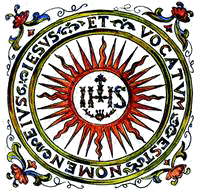One of the mightiest monarchs of the world was the first Napoleon. All of Europe was at his feet. 1804 was the year set for his coronation as emperor, and he invited Pope Pius VII to do him that honor. The Little Corporal tried to persuade the Pontiff to move the papal throne to Paris. With high-sounding language and energetic gestures the conqueror set before the Holy Father the apparent advantages of such a change.Read the whole thing.
"How well you act comedy," the Pope remarked.
Incensed, Napoleon snatched up a drawing of St. Peter's at Rome, tore it to bits and exclaimed: "This is what I will do to the Church! I will completely crush her."
"Now you act tragedy," the Pope said calmly.
And tragedy it proved to be. Twice Napoleon practically put the Pope into prison. Then he grabbed the states of the Church. Exactly four days after that move, Napoleon suffered his first defeat in battle. And the Pope, a prisoner, old and weak, knew his rights and his duty. He excommunicated the emperor, who cried out in his rage: "Does the Pope think his excommunication will cause the guns of my soldiers to fall out of their hands?"
Yet, that is literally what happened. A few years later, in 1814, when Napoleon attacked Russia, almost all his troops, half a million strong, perished in the wintry weather. The guns actually dropped from the frozen hands of his soldiers. The end came rapidly. Napoleon was taken prisoner, exiled, and given plenty of time to realize the might and power of Him who said: "He who hears you, hears me; and he who rejects you, rejects me; and he who rejects me, rejects him who sent me." St. Luke, 10:16.
History has borne out the right of the Church to govern in all things spiritual. The Church has the power to make and to enforce laws.
...
The Catholic Church, now with over 1 billion professed members, has a detailed set of regulations called Canon or Church Law. Of these rules six apply especially to all Catholics. They are:
1. To attend Mass on Sundays and holy days of obligation.
2. To fast and abstain on the days appointed by the Church.
3. To confess our sins at least once a year.
4. To receive Holy Communion at least once a year.
5. To contribute to the support of our pastor.
6. To marry according to the rules of the Church.
The Church has the right to make these laws and she has the right to enforce them. If a teacher has the right to impose a task, she has the right to see that the task is performed, even by punishment. The Church punishes disobedient members by denying the sacraments, Holy Mass, and Christian burial. She does not want to hurt the offender, but to convert him.
It is true, the Church has no police force or army to enforce her penalties in a physical way. But nothing is more clear in history than that Christ has backed up, even in a physical, material way, the commands of His Church. Napoleon in the 19th century, Hitler in 20th, bear witness to Christ's hand in His Church.
Pope Pius VII could not fight back; could not call out an army; could not directly punish Napoleon. But God punished the offending emperor in a definite and strikingly appropriate way. Napoleon boasted that the Pope could not take the guns out of his soldier's hands. Those guns dropped out of their frozen hands a few years later in the Russian snows ...
Adapted from Prayer, Precepts, and Virtues
by Fr. Arthur Tonne
Tuesday, May 03, 2005
I didn't know this story!
From Ad Majorem Dei Gloriam
Subscribe to:
Post Comments (Atom)




















Ha, that's a veeeeeeeery interesting story... That several politicians out there need to be told more often, lol! ;)
ReplyDelete<3